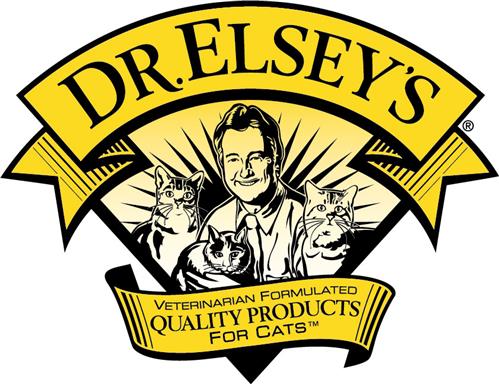The Four-Way Test Scholarship Essay
The Four-Way Test: Out of the Overflow of the Heart the Mouth Speaks
By Ross Melchior
The events that occur in a single day can change a person's routines. The changed routines can change a person's life. Change in a person's life can alter his outlook, perspective, and ultimately, his character. A change in a person's character will inevitably alter the ways in which he relates to others in thought, word, and action. A positive change must enhance and promote what is true, right, fair and beneficial to others, inherently building goodwill and better friendships. The events of a single day made just such a difference in my life.
My junior year of legion baseball had finally come, and I was looking forward to a summer full of college recruiting. Hours of hard work were about to be showcased in a very competitive and heavily scouted tournament in Pueblo, Colorado. My hopes were running high, although that day, for the most part, was no different than any of the other countless days that I rode on the bus to a baseball diamond expecting to play a double header.
The second game of the double-header had just started; it was the top of the first inning. I turned around from my position at second base and, facing my right fielder, I shouted, "Two outs, let's get 'em." The first pitch was a strike. I dug my cleat in the dirt, inhaled a deep breath of contentment, and spoke a word to the teammate beside me, with whom I had played every day for the past seven years. I looked back toward home plate as our pitcher delivered the second pitch. A flare was blooped over my left shoulder and headed into shallow right field. I was off at full speed, I tracked the baseball into the outfield, trying to get just far enough to reach out and snag the ball out of the air. I placed my right foot firmly into the ground, stretched out my glove, and heard an alarmed, "Oh no!" Our right fielder made eye contact with me a split second before smashing his muscled shoulder into my right leg. I flew, in slow motion, for an eternity before falling to the ground, where I laid in excruciating pain.
After a long, bloody car ride to the emergency room, my season ended prematurely when the doctor walked into the room and said, "The x-rays don't look good." A broken tibia would put my life on hold for the next five months. Although the physical pain was substantial, it eventually subsided, giving me a chance to direct my undivided attention to a sober reality. A combination of disappointment, dashed hopes, worry and boredom combusted and threatened my emotional stability. I was predictably upset to be laid up at home as my teammates flew to Las Vegas to continue their tour. These guys weren't just teammates to me though. This group was made up of some of my closest friends. These were guys that I had known for almost half my life, guys that I had spent every with day at school, guys who had gone through hardships with me on the field, guys who were molded together through a common passion, and guys who knew what it was like to be standing in my shoes because they were standing in the same ones. These guys were close to me. In addition to not being able to play the game I love with my friends, my anxiety grew about "college-recruitment summer." With each day that passed, my disappointment, frustration, and feelings of hopelessness increased. I needed someone to encourage me. I needed to feel like I was still part of the team even though I wasn't playing. My family's encouraging words and compassion were helpful, but I craved a friend's empathy. In its absence, my despondence and anger spiraled downward.
Weeks passed after my injury, and the busy lives and focus of my friends kept a text message, phone call, or visit from coming my way. I felt very emotionally hurt when I hadn't heard from anyone two months after the injury. This neglect caused me to jump to false conclusions about the way people that I thought were very close actually thought about me, and I formed an increasingly bitter mindset toward them. I came to the point where I wanted nothing to do with them, a desire which was fulfilled by default because of my inability to practice or play. I had never realized the extent to which I relied on this group of people for emotional stability. Before the injury I didn't understand how big of an impact, positive or negative, one person can have on another person who is in need.
I grew up in Cheyenne, Wyoming. I was raised with my nine siblings on a ten acre piece of land under the loving guidance of my two parents. Having a large family, my parents were forced to raise us differently than most parents raise their children. They created an environment where the people sleeping in the next rooms were your favorite people in the world. We all had to contribute, and everyone had to work together for the household to function. By working together and being together most of the time, we formed very strong relationships where everyone looked out for each other, and everyone was aware of other family members' needs. However, although I had great awareness of what the people in my family needed, I somehow didn't translate this awareness into the lives of people outside of my family. My parents, in contrast, lived out a perfect example of looking for and helping people in need. Although my parents are two of the most generous people I have ever known, I somehow didn't make it a priority in my own life to be others-focused.
It's easy to "talk the talk." A tradition was started years ago on the baseball team I play for. At the start of the season, each player stands in front of the whole team and the coaching staff and makes a speech. The speech consists mostly of what the player wants to accomplish during the upcoming season, and any other words he wants to say to the team. A few months before I broke my leg, each player gave his speech. The first player to give a speech said to the team, "I have your back." After that, speech after speech, each player, including myself, stood up and included some part about how, no matter what, he would be looking out for his teammates, because he "had their backs." As I sat on the couch upset at many of my friends for not helping me through a difficult time in my life, these words kept circling in my mind. Each time I would think about the extent to which many of my teammates, in fact, did not have my back, I would become furious. Finally, with little else to do but think, I took a step back and self-reflected. I asked myself, "If someone else was injured instead of you, would you be at their disposal, looking out for whatever they might need?" Unfortunately, I had to acknowledge that the answer to this question was "no." Philippians 2:4 says, "Don't look out only for your own interests, but take an interest in others, too." I realized that I was holding my friends to a standard that I wasn't holding myself to.
Often we nurture a false reality: We believe we are better than we actually are, or believe we are living out a belief when we really aren't. I realized how selfish I was, not only because I wouldn't look to the needs of others, but because I would condemn someone for something I might have done myself Even though my friends could have given more sympathy to my emotional needs when I was injured, I realized I would have probably been careless enough to act the same way. I made a decision at that moment to be the most others-focused person I could possibly be. I didn't want to just help someone when they asked me or when the opportunity presented itself wanted to make a conscious effort to look for ways in which I could meet the needs of each person involved in my life.
Is it true? Is it fair to all concerned? Will it build goodwill, and better friendships? Will it be beneficial? Words have an astronomical impact on people. The Four-Way Test the Rotary Club espouses can be summed up by Ephesians 4:29, when the apostle Paul writes "Don't say anything that would hurt another person. Instead, speak only what is good so that you can give help wherever it is needed. That way, what you say will help those who hear you." Although the Four-Way Test can be applied aptly to words, it requires a much deeper application. No one can speak words with integrity that contradict his lifestyle. The Four-Way Test must not apply only to what people say, or only to what people think, or only to how people act. The Four-Way Test mustn't be reduced to an external discipline, but rather must embody an internal belief that is so strong, so consistent, and so integral that it is reflected in every aspect of a person's life. For me The Four-Way Test isn't merely a reminder before I speak or before I act, but rather a call to honestly examine my character and beliefs and evaluate the extent to which they translate into actions and words that benefit others.
Being totally focused on others' needs hasn't just affected the people that I have encouraged; it has changed me. I feel satisfaction and fulfillment after encouraging someone who needs encouragement because I know personally how valuable the compassion of another person can be. My injury wasn't a setback after all. It was a pivotal moment that taught me an indispensable lesson. God used the events of a single day to change my routine for several months. The change in my routine, unwelcome at the time, nonetheless changed my outlook on life. The change in outlook precipitated a necessary change in character. In the words of Harry Emerson Fosdick, "He who knows no hardships will know no hardihood. He who faces no calamity will need no courage. Mysterious though it is, the characteristics in human nature which we love best grow in a soil with a strong mixture of troubles."
The admirable precepts of The Four-Way Test can be applied more diligently and with more finesse and effectiveness the more one's character grows to embody the spirit of its outward manifestations. The summer before my senior year provided a vehicle to refine some of this requisite character. I'm sure that that character development will be a lifelong endeavor.
Interested in being a sponsor?
Download the website sponsorship guide
Download the website sponsorship guide






























